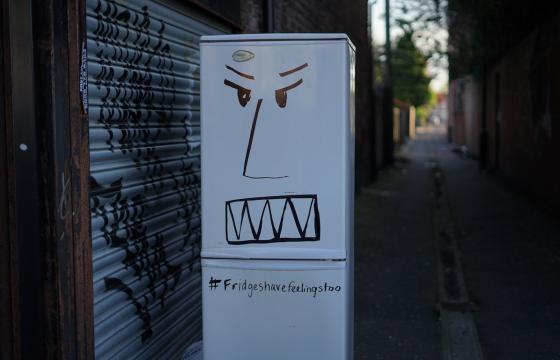Our resident fridge expert, Lee Harpham, talks us through how to keep our fridges cool during the pandemic
COVID-19 is changing our relationship with food. Our inability to simply pop to the shops to grab some food for a meal or top-up supplies has led to drastic changes in our behaviours. However, during such unprecedented times, one thing is for certain: We’ve never had to rely on the fridges and freezers in our homes more than we do now.
As we continue to fill our home units with supplies, we are unwittingly putting extra pressure on them to chill the large volumes of food inside, leaving them at risk of ineffective cooling or worse – malfunctioning.
So, to avoid our refrigerators breaking down and spoiling the food we’ve queued-up for (in an appropriately spaced out line, of course!), how can we best look after them?
Lee Harpham, IMS Evolve’s Refrigeration and Energy Solutions Manager, has provided some simple, but often overlooked, top tips and best practices for maintaining a healthy fridge freezer during this critical time.
Fridge Freezer Fundamentals:
- Inspect your Freezer – Check the type of freezer you have to see how much it can comfortably store. Chest freezers become more efficient the more products you store in them, whereas modern ‘frost-free’ freezers rely heavily on airflow so overpacking them will increase the likelihood of breakdown
- Focus on Frozen – Freezers should only be used to keep products at a constant frozen temperature. By continuously introducing warm products into the freezer you’ll risk spoiling other food – and using much more energy!
- Pack Properly– While having a full fridge or freezer is tempting in these times, remember not to overpack them. Proper air circulation is imperative in order to keep everything efficiently cooled
- Beware Bacteria – Err on the side of caution when eating defrosted food. Freezing food doesn’t completely remove bacteria, but puts them into hibernation, meaning they can ‘wake up’ when food thaws
- Freshen your Fridge Freezers– Even freezing temperatures don’t necessarily kill viruses. The World Health Organisation reported that some viruses, including Covid-19, are still stable in a frozen state. Use sterilizing fluid to wipe down cold surfaces to keep your fridge and freezers clean
- Clean Packaging Properly – Before packing into your units, wipe down food packaging with diluted Milton solution or similar. Since freezing won’t nuke the bugs, it is best to kill anything on the packaging before it goes in
- Cool your Foods Down –Let foods cool and get to room temperature before you refrigerate or freeze them. Putting warm foods into your units will increase the internal temperature of the unit and could cause other foods to start defrosting
- Check your Temperatures– Keep checking your fridge and freezer temperature to ensure it is running as it should. No built-in thermometer? Check the food inside – if the ice cream isn’t rock hard, it probably isn’t cold enough
- Failing Fridge– If there’s a power cut or your fridge has unexpectedly turned off, don’t open the door or move anything around. Food can stay frozen for around 24 hours even in a unit that is off!
Take care and keep cool.
